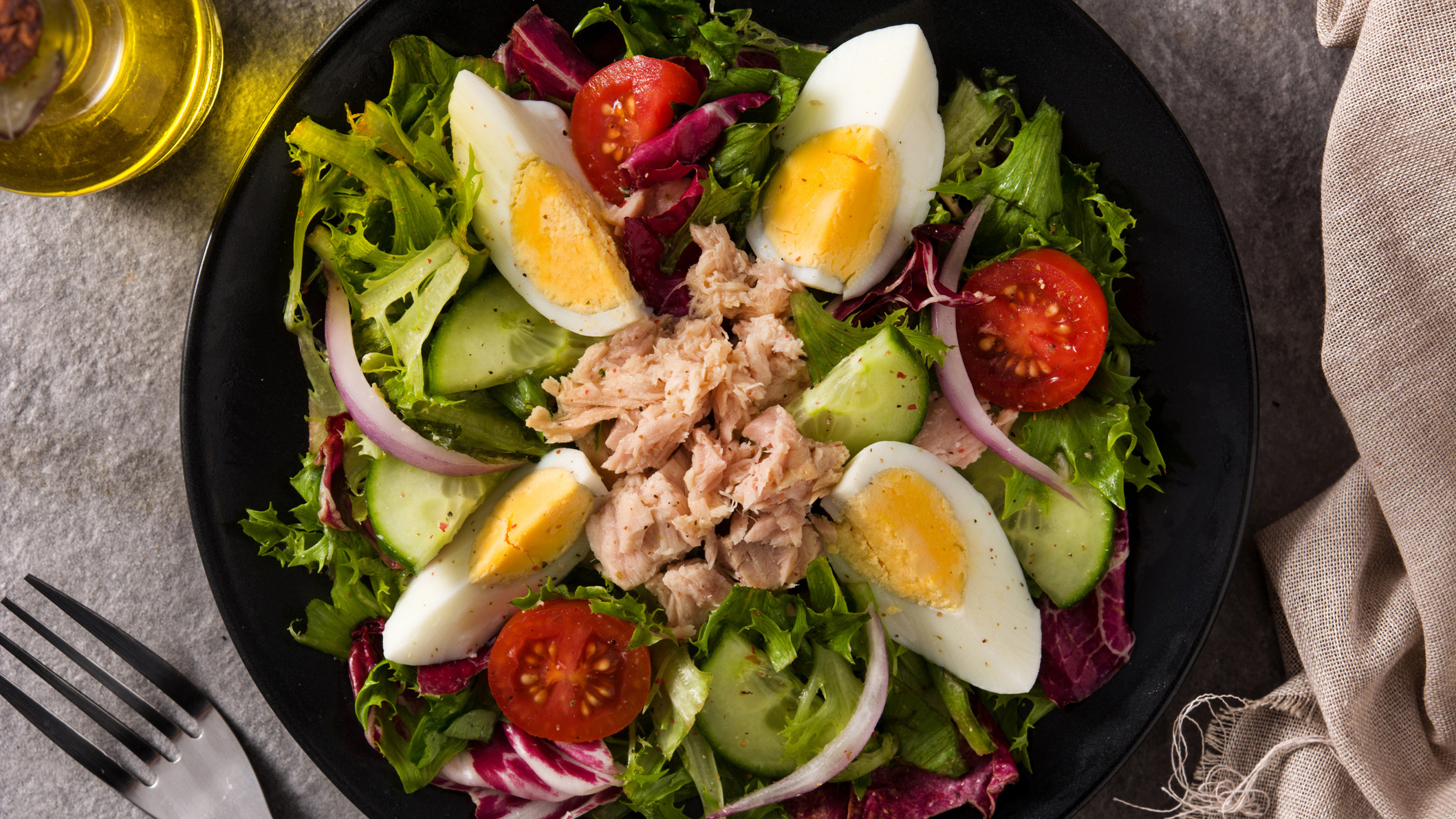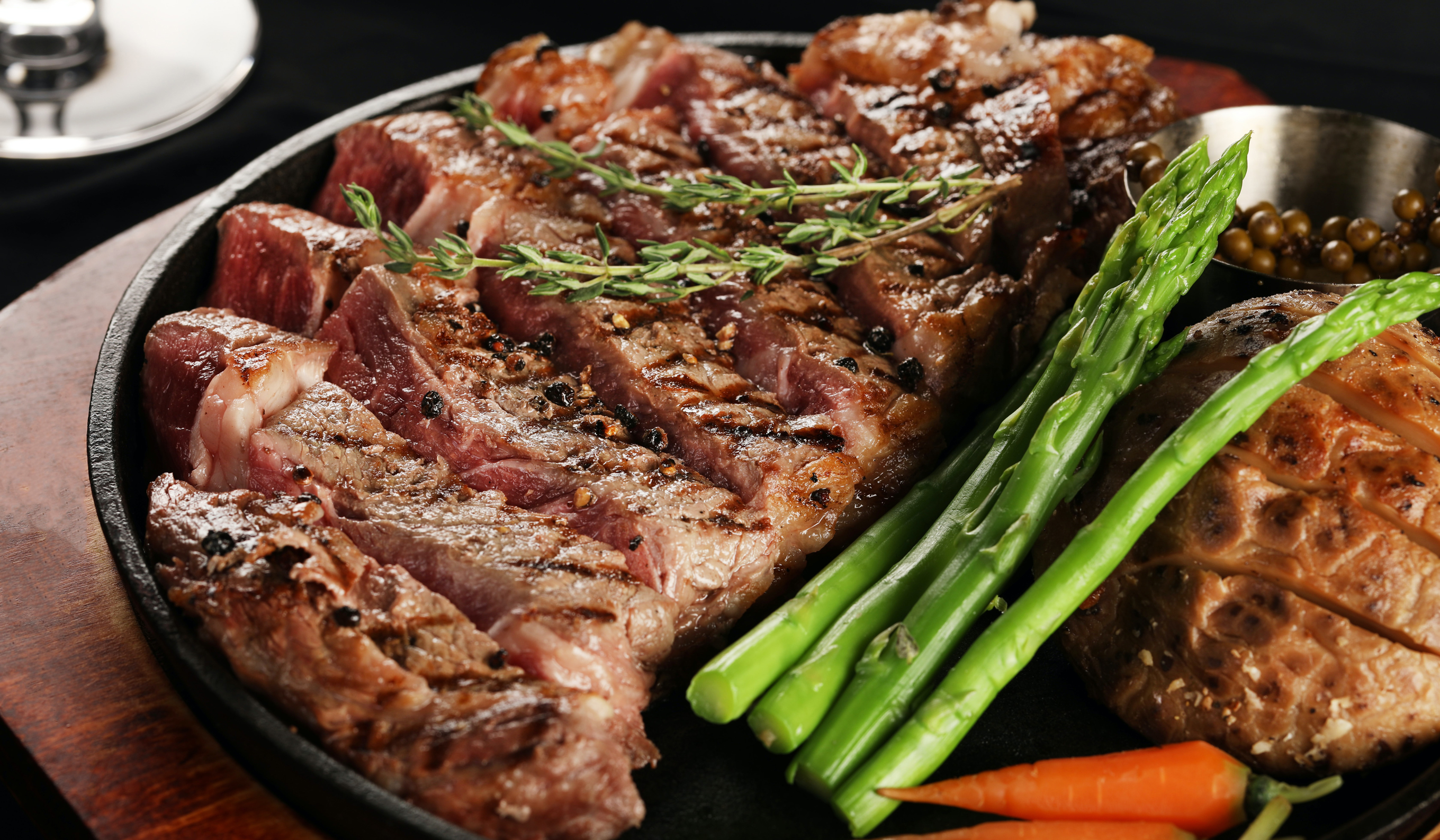Is the pegan diet really effective for weight loss?
The pegan diet is a mix of paleo and vegan diet philosophies, but can it really help us lose weight?


Start your week with achievable workout ideas, health tips and wellbeing advice in your inbox.
You are now subscribed
Your newsletter sign-up was successful
The pegan diet is the latest diet buzzword to catch the attention of fitness fans and those hoping for a real lifestyle change in 2022. A combination of paleo, which is popularly known as "the caveman diet" and veganism, it seems counter-intuitive to be a vegan and eat like a caveman at the same time.
However, it seems the pegan diet is going to be the keto of 2022 – so what is the diet, and should you try it if you're looking to lose weight? While you're at it, peruse our list of the best vegan cookbooks for recipe ideas, and if it's weight loss you're after, our guide to the best exercise machines to lose weight.
What is the pegan diet?
The phrase 'pegan diet' was originally coined by doctor and author, Dr Mark Hyman on his blog in 2014. A combination of paleo and vegan diet principles, his aim was to create a practical approach to a mostly plant-based diet full of fresh veggies and fruits along with some grains, high-quality meat, and fish.
Paleo, or the "caveman diet" advises ditching processed food, added sugars, and refined carbohydrates, which no one can argue against from a health perspective. But it also advocates removing grains and legumes, which are permitted on a vegan diet. Likewise, the vegan diet allows for grains and legumes while removing unprocessed cuts of meat and fish, eggs, and other unprocessed animal products. The pegan diet is a combination of these philosophies: it's a fruit-and-veg focused vegan diet with non-processed meat, fish and eggs back on the table.
Unfortunately, dairy – which is excluded from both vegan and paleo diets – is still out on the pegan diet, and it's advised to reduce your gluten consumption as much as possible. Beans are advised to be eaten sparingly, as they're often full of starch, while meat or animal products become a condiment, not a main course. For example, rather than a big steak being the central meal, opt for a platter of veggies or a salad with some sliced steak mixed in as part of the meal, rather than the main event.

Is the pegan diet really good for weight loss?
Probably, but there's caveats. Common sense dictates if you cut out processed food and starchy carbohydrates in favour of fresh veggies and lean meats, you're extremely likely to lose weight, as one diet is obviously healthier than the other. Not limiting your choices in the way a vegan or paleo diet alone might also provides a degree of flexibility neither diet can give you alone, ensuring you don't get bored.
However, the pegan diet encourages its followers to remove dairy and gluten from their diets, which is fine if your main motivation is animal welfare or ethics, but there's not much evidence that dairy causes digestion issues or weight gain in people that aren't lactose-intolerant. A meta-analysis of 22 studies found no evidence or correlation between dairy and weight gain. In fact, a separate analysis found dairy, as part of a calorie-restricted diet, actually assisted in a reduction in fat mass.
Start your week with achievable workout ideas, health tips and wellbeing advice in your inbox.
Likewise with gluten: it's likely the sugary, starchy carbohydrates, rather than a gluten intolerance, is what causes weight gain. The main issue people have with restrictive diets is that they tend to be too hard to follow, and so you bounce back into old habits.
If pegan works for you, great – it's unlikely to be dangerous in and of itself. However, the key to weight loss is sustaining it over the long term, so whether you go full pegan or part-time, allowing yourself some occasional treats, use it in a way to benefit yourself. Try simple food swaps: for example, instead of a burger with a side salad, opt for a larger salad and that steak cooked on one of our best health grills.
Matt Evans is an experienced health and fitness journalist and is currently Fitness and Wellbeing Editor at TechRadar, covering all things exercise and nutrition on Fit&Well's tech-focused sister site. Matt originally discovered exercise through martial arts: he holds a black belt in Karate and remains a keen runner, gym-goer, and infrequent yogi. His top fitness tip? Stretch.
